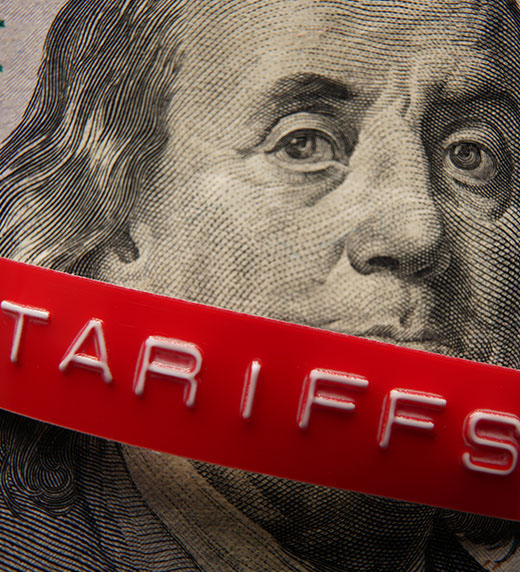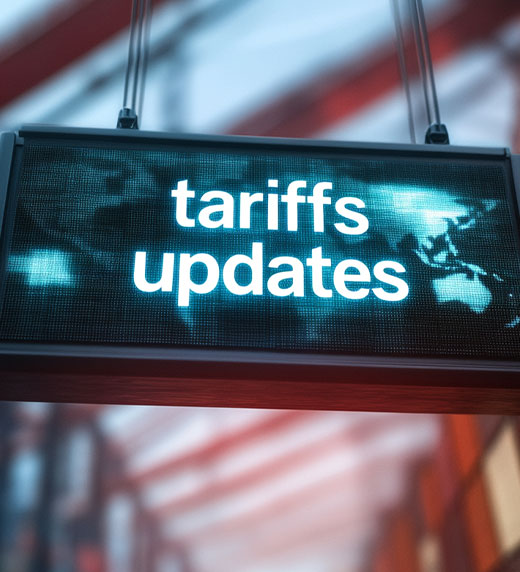With Donald Trump set to take the helm as president in January, multiple new tax policies are on the horizon. This article aims to provide a comprehensive overview of Trump's proposed tax plans and the potential impact on individual taxpayers, business owners, high-net-worth individuals and corporations.
Trump's win signals a desire for change among American voters. It’s too early to predict everything he’ll do, but don’t be surprised if he tries to move the needle in a major way — especially given his tax proposals, which stand in contrast to Harris’s plans.
Understand the Proposed Tax Changes
Individual Tax Rates
Trump's tax plan proposes several significant changes to individual tax rates:
- Make the Tax Cuts and Jobs Act (TCJA) rate cuts permanent.
- Introduce a 10% middle-class tax cut.
- Reduce the 22% tax bracket to 15%.
- Exempt tips earned on services (dining, hair care, etc.) from taxation.
- Exclude Social Security from income tax, which could benefit many retirees.
Corporate Tax Rate
Trump wants to reduce the corporate tax rate to 20% for C-corporations and make the 20% qualified business income (QBI) pass-through deduction permanent.
These cuts could provide business leaders with additional capital to reinvest in their operations and lead to job creation. However, proposed import tariffs may increase costs for businesses that rely on foreign goods, affecting profitability.
Capital Gains
Trump's plan includes indexing capital gains for inflation, effectively reducing rates. This change could be advantageous for investors and high-net-worth individuals, potentially encouraging more capital investments.
Tax Cuts for Businesses
Trump proposes making 100% bonus depreciation permanent and introducing "Made in America" tax credits. These incentives aim to stimulate domestic production and investment, benefiting businesses that invest in machinery, equipment and other capital expenditures.
Tariffs and Trade
One of the more controversial aspects of Trump's tax plan is the imposition of tariffs on imports, including a 10% tariff on imports and an additional 60% on goods imported from China. While intended to encourage domestic production, these tariffs could raise consumer prices and affect global trade relationships.
Tax Implications Specific to Privately Held Businesses
Trump is planning significant tax changes that could benefit privately held businesses and increase investment and hiring opportunities. Here’s what we know right now:
- Trump may lower corporate tax rate to 15%, and he hinted at rewarding corporations that manufacture in the U.S. with this lower tax rate. Could this mean the return of the Domestic Production Activities Deduction (DPAD) or a similar incentive for medical device and equipment manufacturers (see the healthcare industry insights below for more)?
- Trump suggest that he wants to make the individual 2017 tax rate reductions permanent, and potentially reduce individual tax rates further (See above for details).
- Trump says he wants to eliminate the $10,000 state and local taxes (SALT) cap, which would allow individuals to deduct state and local tax on their Schedule A.
- The historically high estate and gift tax exemption is on Trump’s radar. He’s suggested that he wants to make the current rate of $13.61 million ($27.22 million for married couples) in 2024 permanent. This exemption is slated to sunset back to $5 million adjusted for inflation after 2025.
- Trump has mentioned reinstating 100% bonus depreciation, as this is set to phase out over the next few years.
- He's also recently mentioned allowing for the immediate deduction of research and development expenses under §174.
Potential Industry Impacts and What to Do Now
How should business leaders prepare for the next four years under the Trump administration? For now, your best option is to stay flexible, so you can adapt your business practices to save on taxes. Here are some suggestions based on what we know about potential tax policies and how they could affect specific industries.
Healthcare
Trump’s team is setting the stage for transformative changes in the healthcare sector. Key proposals include the possibility of trimming the corporate tax rate to 15% and offering tax breaks to companies that manufacture within the U.S., likely paving the way for incentives akin to the DPAD (which was repealed in 2018 with TCJA). This could benefit manufacturers of medical devices and equipment.
- Investment priorities have changed because of legislation proposals related to private equity (PE) investment in the industry. Impacts include:
- Some PE firms are shifting focus from providers to healthcare IT and pharma companies.
- Providers have been dropping Medicare Advantage (MA) plans.
- The Trump campaign promoted more MA plans run by commercial insurers, which may ultimately privatize the program.
- Insurers focused on Medicare market jumped on expectation that the new administration will pay higher rates.
- United Health Group shares rose as much as 9.3% overnight.
- Humana gained as much as 12%.
- CVS Health Corp shared rose as much as 11%.
- Insurers focused on Medicaid markets anticipate lower payment rates with the election results.
- Centene fell as much as 7.7%.
- Molina Healthcare declined as much as 6.7%.
- Possible changes to Medicaid and Medicaid managed care may include work requirements for beneficiaries.
- Providers and insurers working under the Affordable Care Act plans are concerned about changes.
- Republican House Speaker Mike Johnson promised “massive reform” to the law, especially if Republicans control the House and Senate.
- Even though seven states recently voted to constitutionally guarantee abortion rights in this election, the debate over abortion rights is not over.
- Abortion restrictions may tighten with potential efforts to restrict the distribution and cost of abortion medications.
Manufacturing & Distribution
M&D looks to be a significant focus for the incoming Trump administration with lots of talk about tariffs, TCJA extensions and a potential rollback of the Inflation Reduction Act. These changes could reshape the fiscal landscape, affecting how industries strategize tax planning and compliance. Here are some more detailed insights:
- Trump’s proposed tariff increases could provide a domestic competitive edge, as it may inflate the prices of their international counterparts.
- Manufacturers that get their products from overseas will likely see increased costs because of the tariffs and may want to source products from other countries or explore strategies to minimize tariff impacts.
- Congress may extend popular portions of TCJA and revise less popular elements such as R&D capitalization and interest expense limitations.
- Manufacturers in the renewable energy space may see changes to green energy incentives if the president is successful in overturning the Inflation Reduction Act.
Technology
We anticipate an uptick in mergers and acquisitions (M&A) and a potential surge in initial public offerings (IPOs). The reduction in regulation aims to bolster economic activity, although the interplay with other policies, such as tariffs, remains uncertain. Here’s where we see the most movement for the tech industry:
- U.S. producers will benefit while foreign manufacturers or those who import foreign products (including Walmart and Target) may suffer.
- Many executives shared that now that the election is decided, they can overcome uncertainty and increase investment in multiyear ROI endeavors.
- We expect the Trump administration to uphold rulemaking, oversight and enforcement of “critical security areas” like cybersecurity, artificial intelligence, financial crime, fraud and prioritizing financial and operational resilience with contingency funding.
- The tech sector is poised for growth, benefiting from a climate of reduced regulation and influential connections between tech leaders and the administration.
Get Ready for Tax Changes
The Trump administration is releasing details about upcoming change as fast as the news cycle allows, and it’s hard to stay ahead. Find out how Armanino’s forward-looking tax advisors can help you understand what’s next with tax legislation and position your business to thrive.



